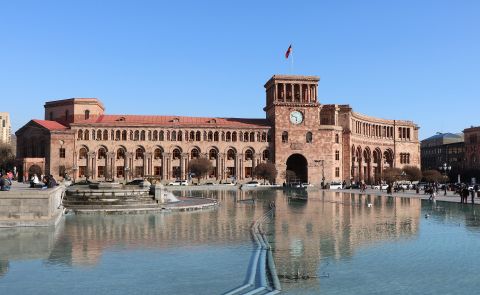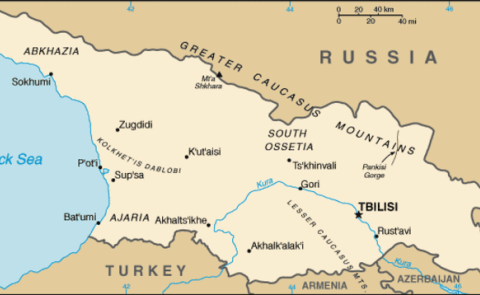
Green Climate Fund approves large forestry project in Armenia

On 19 August, the press service of the Food and Agriculture Organization (FAO) reported that the Green Climate Fund (GCF) Board has approved a project in Armenia, formulated with FAO support, to enhance climate change adaptation and mitigation, promote rural green growth, and increase the resilience of forests, reported arka.am.
According to the press service, the eight-year Green Climate Fund project, with a total budget of $18.7 million, will be implemented by FAO and the Environmental Project Implementation Unit in close cooperation with the Ministry of Environment of Armenia. The effort will be further supported financially by the Government of Armenia, the Austrian Development Agency, the Autonomous Province of Bolzano and WWF Armenia.
The two target regions – Lori marz in the north and Syunik in the south – were selected based on the forest type, population density, local poverty levels, and exposure to climate change, in addition to its impact on important forest ecosystems. Through investments in agroforestry and capacity development, the project will increase national forest cover and carbon removal from forests by reducing fuelwood demand, supporting reforestation and afforestation, and introducing sustainable and climate adaptive forest management.
A key element of the project is the involvement of the private sector for a wider impact, and to ensure long-term sustainability. This will be done by introducing energy-efficient heating stoves for rural areas. “By financing the development of low-cost, energy-efficient stoves in the country, the project will increase awareness of the affordable heating stove options available to people living in rural areas, which can lead to savings for private households, as well as public benefits, such as reduced greenhouse gas emissions,” said FAO’s Jacopo Monzini, leader of the GCF project formulation team. Involving multiple stakeholders is a key focus of the project.
This marks the fourth project that the GCF will implement in Armenia. The other three projects are: 1) the transition of cities to low-carbon, climate-resilient urban development (Green Cities); 2) a co-financing programme with the European Bank for Reconstruction and Development (EBRD) to deliver climate finance to the private sector; and 3) improving energy efficiency in the country through building retrofits.
Climate change threatens over 15% of Armenia’s higher plant species with extinction. Semi-desert and desert areas are projected to expand by 30 percent, accelerating desertification. Armenian forests are expected to suffer significant growth losses as climate change makes trees more vulnerable to attack by insect pests. Severe and repeated pest infestations will lead to increased tree mortality, which also contributes to the accumulation of drying dead organic matter in forests, increasing the risk of wildfires. According to a study conducted by the World Bank in 2009, Armenia ranked fourth most vulnerable country in the Europe and Central Asia region (behind Russia, Albania and Turkey).
See Also


BP Plans Second Deep-Gas Production Well at Azeri-Chirag-Gunashli

Separatist Abkhazia and Russia Reaffirm Strategic Partnership in Moscow Meeting

Weekly Brief on Military Situation in South Caucasus Countries (June 2–8, 2025)

Armenia–Russia Trade Hits $12 Billion in 2024, Up 60%

